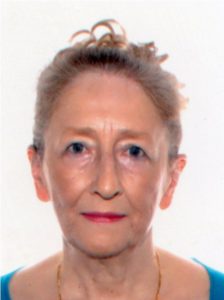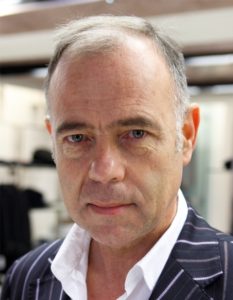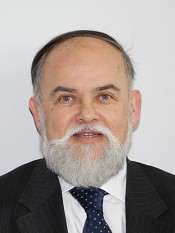 João Esteves-Ferreira, President of AsLing João Esteves-Ferreira, President of AsLing
João Esteves-Ferreira graduated in Arts, Business Administration and Terminology.He qualified as a Sworn Translator in Switzerland (1977) and as a Conference Interpreter (1983).
He has held several posts in Swiss professional translation organisations, culminating with the Presidencies of ASTTI (Swiss Association of Translators, terminologists and Interpreters) and ASTJ (Swiss Association of Sworn-in Translators).
João served as Council Member of the Fédération internationale des Traducteurs (FIT) from 1996 to 2005 and as Chairman of FIT Europe 2005-2008. He was the Founder and first Chairman of FIT Translation Tools and Technology Committee (2000-2005).
In 2000, he founded tradulex, the International Association for Quality Translation, which he has chaired since its inception.
He is also President of ASLING, the International Association for Advancement in Language Technology and Co-Chair of the Translating and the Computer Conferences TC36 and TC37.
His current activities, besides translating and interpreting, are the coordination of tradulex and the training of professional colleagues. João has published a great number of papers on legal translation, translation technology and professional issues. |
 Juliet Macan, Vice-President of Asling Juliet Macan, Vice-President of Asling
Juliet Macan was born in Malta, educated in England, where she studied Sociology and Psychology at Leeds University.After working for fifteen years as a freelance translator in Italy, specialising in medicine, pharmacology and plant pathology, in 1991 she joined Intracoop, as a senior language consultant.
In 1994 she had her first encounter with a CAT tools: IBM Translation Manager, Trados and DejaVu.
In 1999 she became Translation Tools Manager of the new company Ic.doc, with a strong emphasis on technology. She was responsible for ensuring optimum use of translation technology by the company, training in-house staff and external freelancers, advising customers, evaluating new projects, problem-solving and testing of new tools such as SLDX, Multitrans, across, Memo-Q, SDL Studio, XTM and ONTRAM.
She also investigated the Quality assurance functions of these tools in comparison with the stand-alone QA tools such as Error Spy, QA Distiller and XBench, overseeing the introduction of Quality Assurance procedures within the company. Engaged as a consultant in the new company Arancho Doc, setup at the beginning of 2011.
She has lectured at Bologna and Palermo universities, given presentations at numerous conferences throughout Europe and held workshops on translation tools and QA procedures and technology for language technology specialists, project managers and translators. An expert in translation technology and the problems related to new authoring methods, she provides consultancy services and training for international companies.
She is Vice-president of AsLing (Association internationale pour la promotion des technologies linguistiques), a not for profit association set up in Geneva in 2014 to promote the development, knowledge and use of translation technology in the academic sector, large international organisations and industry.
She was lead chair of the 36th Translating and the Computer Conference in London. |
 Ruslan Mitkov (Prof. Dr.), Vice-President of Asling Ruslan Mitkov (Prof. Dr.), Vice-President of Asling
Ruslan Mitkov has been working in Natural Language Processing (NLP), Computational Linguistics, Corpus Linguistics, Machine Translation, Translation Technology and related areas since the early 1980s.His research output was highlighted as being internationally leading in the last UK Research Assessment Exercise (RAE 2008). Whereas Prof. Mitkov is best known for his seminal contributions to the areas of anaphora resolution and automatic generation of multiple-choice tests, his extensively cited research (more than 210 publications including 9 books, 25 journal articles and 25 book chapters) also covers topics such as machine translation, natural language generation, automatic summarisation, computer-aided language processing, centering, translation memory, evaluation, corpus annotation, bilingual term extraction, automatic identification of cognates and false friends, NLP-driven corpus-based study of translation universals and text simplification.
Prof. Mitkov is author of the monograph Anaphora resolution (Longman) and sole Editor of The Oxford Handbook of Computational Linguistics (Oxford University Press) which has been hailed as the most successful Oxford Handbook. Current prestigious projects include his role as Executive Editor of the Journal of Natural Language Engineering (Cambridge University Press), Editor-in-Chief of the Natural Language Processing book series of John Benjamins publishers, and Consulting Editor of Oxford University Press publications in Computational Linguistics. He is also working on the forthcoming Oxford Dictionary of Computational Linguistics (co-authored with Patrick Hanks) and the forthcoming second, substantially revised edition of the Oxford Handbook of Computational Linguistics.
Prof. Mitkov has been invited as a keynote speaker at a number of international conferences.
He has acted as Programme Chair of various international conferences on Natural Language Processing (NLP), Machine Translation, Translation Technology, Translation Studies, Corpus Linguistics and Anaphora Resolution.
He is asked on a regular basis to review for leading international funding bodies and organisations and to act as a referee for applications for Professorships both in North America and Europe. Ruslan Mitkov is regularly asked to review for leading journals, publishers and conferences and serve as a member of Programme Committees or Editorial Boards.
Prof. Mitkov has been an external examiner of many doctoral theses and curricula in the UK and abroad, including Master’s programmes related to NLP, Translation and Translation Technology.
Dr. Mitkov has considerable external funding to his credit (more than £ 15,000,000) and is currently acting as Principal Investigator of several large projects, some of which are funded by UK research councils, by the EC as well as by companies and users from the UK and USA.
Ruslan Mitkov received his MSc from the Humboldt University in Berlin, his PhD from the Technical University in Dresden and worked as a Research Professor at the Institute of Mathematics, Bulgarian Academy of Sciences, Sofia.
Dr. Mitkov is Professor of Computational Linguistics and Language Engineering at the School of Humanities, Languages and Social Sciences at the University of Wolverhampton which he joined in 1995 and where he set up the Research Group in Computational Linguistics. His Research Group has emerged as an internationally leading unit in applied Natural Language Processing (the output of the Research Group was classed by RAE 2008 as internationally leading, internationally excellent and internationally recognised) and members of the group have won awards in different NLP/shared-task competitions. In addition to being Head of the Research Group in Computational Linguistics, Prof. Mitkov is also Director of the Research Institute in Information and Language Processing. The Research Institute consists of the Research Group in Computational Linguistics and the Research Group in Statistical Cybermetrics, which is another top performer in the recent RAE.
Ruslan Mitkov is Vice President of ASLING, an international Association for promoting Language Technology. |

Olaf-Michael Stefanov, Vice-President of Asling and TC37 lead chair
Olaf-Michael Stefanov is an IT professional with a strong focus on multilingualism. During 36 years on staff at the United Nations he managed various information-technology related areas, the last
being Library and Linguistic Support for Vienna headquarters, which included reference and terminology support for the editorial, translation and interpretation sections.Having introduced the first completely web-based multilingual terminology database handling Arabic, Chinese, Cyrillic and Latin scripts for input, query, and output, VINTARS, he presented it at Translating and the Computer – 20, in 1998. He also introduced digital dictation and voice-recognition into the translation workflow of several international and multinational organizations.Although retired from the UN he continues to serve in the site administration and management of JIAMCATT, an information exchange among governmental and intergovernmental language professionals, serves as co-moderator of the JIAMCATT Working Group on Standardization and Interoperability and has implemented multilingual Web 2.0 and CMS tools for JIAMCATT. |
 João Esteves-Ferreira, President of AsLing
João Esteves-Ferreira, President of AsLing
 Juliet Macan, Vice-President of Asling
Juliet Macan, Vice-President of Asling
 Ruslan Mitkov (Prof. Dr.), Vice-President of Asling
Ruslan Mitkov (Prof. Dr.), Vice-President of Asling

